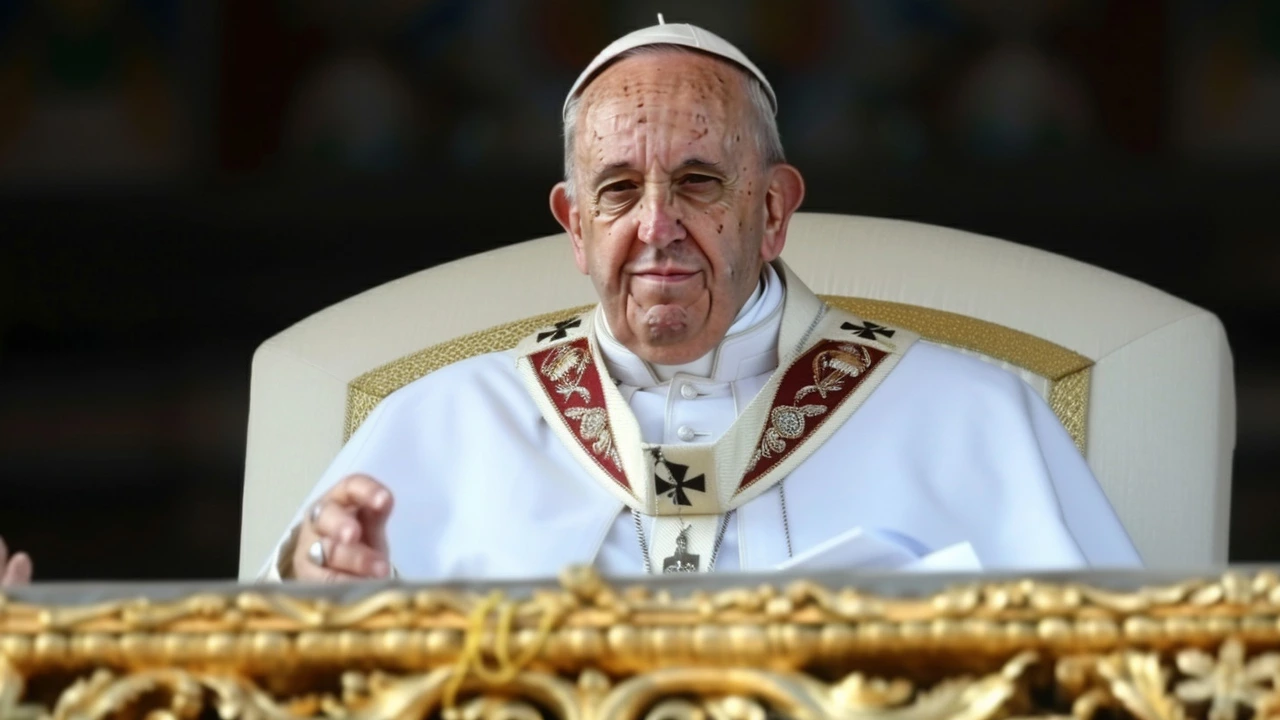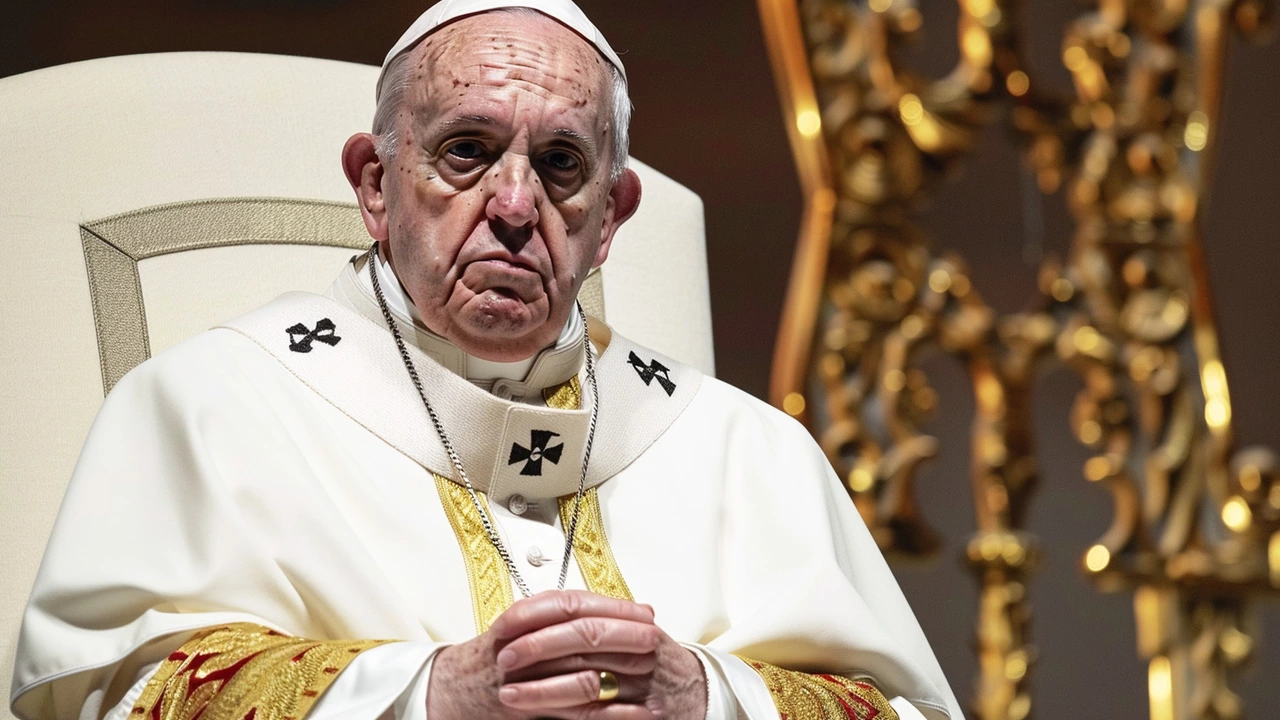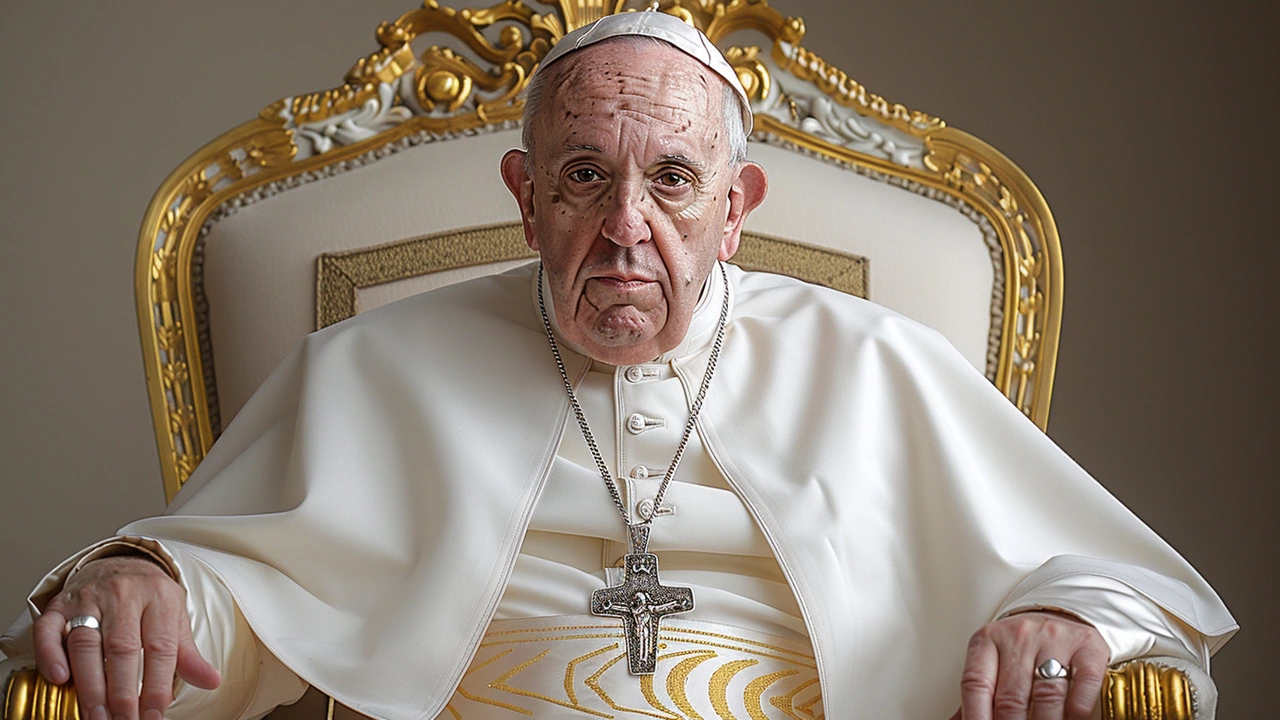
Pope Francis Sparks Controversy with Remarks on Gay Priests
Pope Francis, known for his progressive stance on various social issues, has recently come under scrutiny for his remarks at the Italian Bishops' Conference regarding gay men in the priesthood. This latest statement from the Pope has sparked a wave of debate and criticism among the faithful and secular observers alike. At the heart of the controversy lies his assertion that gay men should not be allowed to train for the priesthood, even if they vow to remain celibate.
Understanding the Context
During the conference, Pope Francis used the term 'frociaggine,' which, when translated, can be understood as a highly derogatory slur equivalent to 'faggotry' in English. The Pope's choice of words has been met with astonishment and dismay, especially in the anglophone world where such language is considered extremely offensive. However, some argue that in Italian culture, the term does not carry the same weight and severity as it does in English-speaking countries. It underscores how cultural nuances and language differences can impact the interpretation and reception of certain statements.
Sexual Orientation and Priesthood
The Catholic Church has long held traditional views on sexual orientation and the role of clergy. According to the Pope, the presence of homosexual individuals within the priesthood, even if celibate, poses significant issues. His remarks suggest that the training and inclusion of gay men could lead to challenges within the Church's hierarchy and its adherence to celibacy and chastity. This viewpoint aligns with the Church's historical stance on homosexuality, yet it appears to contradict the Pope's previous messages of inclusion and acceptance for the LGBTQ+ community.
Many critics argue that the Pope's comments are a step backward in the Church's approach to inclusivity and compassionate care. For those struggling with same-sex attraction, the message may seem like a rejection rather than an offer of support and understanding. It is essential, therefore, to consider the broader context of these remarks and the Pope's overall intentions.

Reactions from the Secular Media
The secular media has been particularly vocal in its reaction to the Pope's statements, with many outlets expressing surprise and disappointment. These reactions are rooted in the expectation that Pope Francis, often seen as a reformist, would champion progressive values even within the traditionally conservative framework of the Catholic Church. The discrepancy between the Pope's past advocacy for marginalized groups and his recent comments has led to confusion and criticism.
Some media commentators have suggested that the Pope's use of the term 'frociaggine' indicates a significant cultural disconnect between the Vatican and the broader, more liberal global audience. This disconnect highlights the challenges faced by the Church in addressing contemporary social issues while remaining rooted in its doctrinal traditions.
The Importance of Language and Cultural Sensitivity
The incident underscores the critical role of language and cultural sensitivity in global communications. Words carry different connotations and weights across cultures, and in this case, the term used by Pope Francis has opened up a broader conversation about the responsibility of religious leaders to choose their words carefully. The emphasis on modesty and compassion in speech is particularly relevant in a faith that teaches love and acceptance.
Support and Salvation
There are organizations within the Church, such as Courage International, that work to provide support for individuals struggling with same-sex attraction. These groups aim to offer guidance and salvation by promoting celibacy and adherence to Church doctrines. While their approach is aligned with traditional Catholic teachings, it also raises questions about the balance between doctrinal adherence and compassionate pastoral care.
The Pope's comments bring to light the ongoing tension within the Catholic Church regarding its stance on homosexuality and how it reconciles these views with modern societal values. It is a complex issue that requires careful navigation to ensure that the Church remains faithful to its teachings while also offering genuine support and understanding to all its members.

The Path Forward
As the Catholic Church continues to grapple with its position on LGBTQ+ issues, it is crucial to foster an environment of dialogue and reflection. The reactions to Pope Francis' statements reflect a broader yearning for progress and inclusivity within religious institutions. For many, this moment represents an opportunity for the Church to reevaluate its approach and find ways to bridge the gap between tradition and contemporary values.
Ultimately, the Pope's choice of words and the resulting fallout serve as a reminder of the power of language and the importance of cultural awareness. It calls on all leaders, religious or otherwise, to consider the impact of their words and to strive for a more inclusive and empathetic discourse.
In conclusion, while Pope Francis' remarks at the Italian Bishops' Conference have ignited controversy, they also highlight the need for ongoing dialogue within the Church. It is through such conversations that the Church can navigate the delicate balance between maintaining its doctrines and embracing a diverse and ever-evolving world.

Write a comment